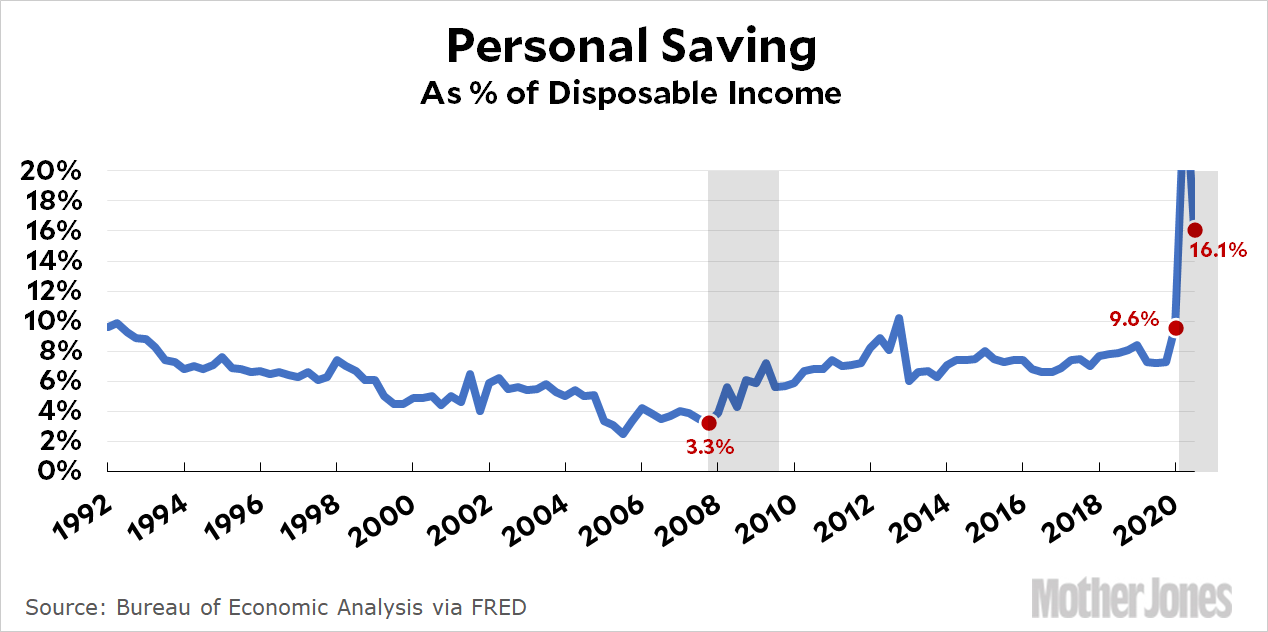Investors in the stock market are obviously pretty optimistic about the future state of the economy. But are they too optimistic? Why would anyone think that we’re going to recover from our current recession any faster than we recovered from the Great Recession of 2008-10?
There are two reasons for optimism. Here’s the first:

When the housing bubble collapsed in 2007 and took consumer demand with it, we were at the end of a long period in which personal saving had drifted down to a meager 3.3 percent. This made the aftermath of the recession especially bad since households had almost no savings to make up for loss of income. The next four years were spent on rebuilding those savings, which contributed to a slow recovery of consumer spending.
The situation is just the opposite today. Household savings were high before the pandemic hit and that gives families a spending cushion. This is one reason that consumer spending has recovered so quickly even though we haven’t even exited the recession yet.
But there’s a second reason for optimism that’s closely related to the first. In 2009, even though it was obvious that the Great Recession was, indeed, great, Congress was willing to pass a stimulus bill of only $800 billion over two years. That’s $400 billion per year.
Compare that to the CARES Act, passed in March just as the pandemic recession was starting. It allocated $2.2 trillion, all of it designated for this year, and Congress seems likely to approve another trillion dollars during the lame duck session, most of it designated for the next six months or so. That comes to $3.2 trillion over 16 months, an annual rate of $2.4 trillion. That’s six times as much stimulus as Congress approved in 2009.
This is what’s responsible for the huge spike in personal savings starting last summer. The CARES Act kept the economy afloat and put money in people’s pockets, much of which was put into savings. That savings is now being drawn down, which has kept consumer spending in reasonably good shape. There’s every reason to think that by next summer, when mass vaccine uptake should finally bring the pandemic to an end, the underlying economy will be in pretty good shape and can pick up where it left off rather than sputtering along because consumers are desperately trying to increase their savings instead of spending their paychecks.
There are plenty of caveats to this, chief among them the possibility of employment never recovering to its pre-pandemic level. Nevertheless, there’s a pretty basic story here: unlike 2009, Congress was willing to pass a massive stimulus bill that kept both personal savings and consumer spending in decent shape. Combine that with the fact that most people believe the pandemic recession has a natural ending point (when the uptake rate for the vaccine becomes high enough to stop the spread of the coronavirus) and there’s good reason to think that we should recover fairly quickly in the second half of next year.

















